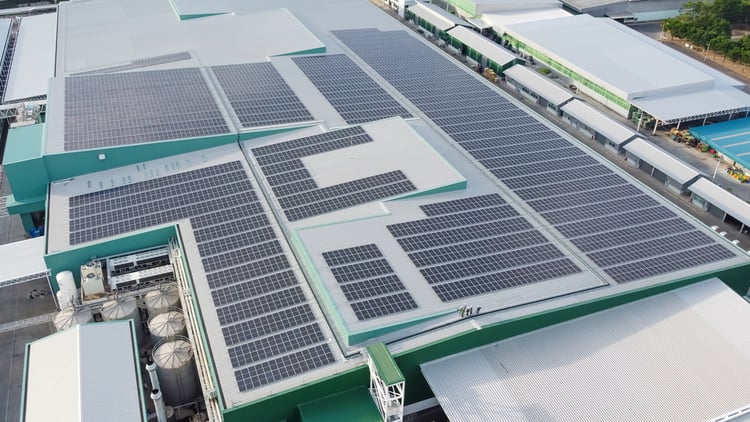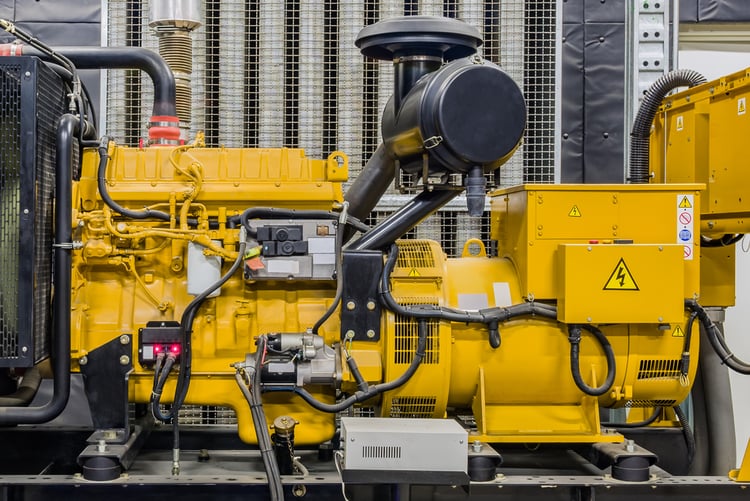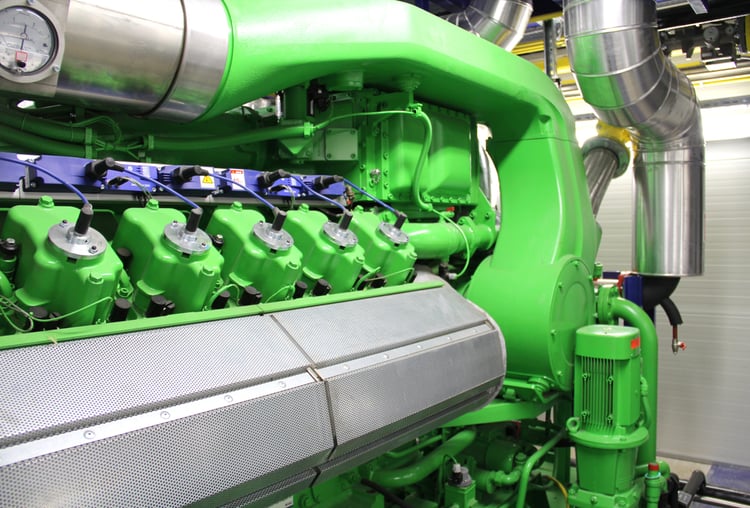Backup Power Options: Solar Battery, Diesel Genset & Gas Microturbine

A backup power supply is very important for buildings, especially during extended blackouts and other emergencies. Traditionally, backup power has been provided by diesel generators, but natural gas microturbines and solar-powered battery systems are also viable. Like in any engineering decision, each option has advantages and limitations.
Get a reliable backup power system design for your building project.
Regardless of how your building is powered during emergencies, a professional design ensures a reliable backup power system, while meeting building codes. In this article, we will provide an overview of the three options mentioned above.
Solar Battery Systems

Solar power is America’s fastest growing electricity source, and the total installed capacity in the country surpassed 100 gigawatts during the first months of 2021. Solar panels become even more useful when combined with battery systems - their electricity can be used at any time, and not only when there is sunshine available. Batteries can also be used for backup power, something that is not possible with solar panels alone.
A key advantage of a solar battery system is not requiring any external fuel inputs, while diesel must be delivered by truck, and natural gas must be provided as a utility service. Also, backup generators fired by fossil fuels don’t perform any functions when the building operates normally, while a solar power system is constantly reducing your electricity bills.
The US offers a federal tax credit for solar power systems, which is currently set at 26% until the end of 2022. However, the tax credit also covers solar powered battery systems, as long as they meet the following condition:
- Residential battery systems: Getting 100% of their charge from solar panels.
- Business battery systems: Getting at least 75% of their charge from solar panels.
A solar power system with batteries also operates with zero emissions, while diesel generators and gas microturbines release greenhouse gases when being used. Going solar is especially helpful for NYC buildings covered by Local Law 97 of 2019 - the law applies emission limits starting from 2024, penalizing buildings owners who exceed them.
Diesel Generators

Diesel generators have been field-proven as backup power systems, and their reliability has been tested in remote sites like mines and oilfields. Diesel generators are also accepted by the vast majority of building codes, while battery systems and gas microturbines often face limitations.
- For example, stand-alone gas turbines are not accepted as emergency power systems in many building codes, since they can’t store their fuel locally.
- On the other hand, a diesel generator can be easily equipped with a larger storage tank.
However, the reliability of diesel gensets comes with a price. Generating electricity with diesel is very expensive - you can expect a cost of over $0.30 per kilowatt-hour in most buildings, and over $1.00 per kilowatt-hour in remote sites.
Using diesel also brings a logistical challenge, since the fuel can only be delivered by truck. This can become an issue if transportation is disrupted during long emergencies, such as extreme weather events. If diesel deliveries cannot reach a building, it will soon be left without backup power.
Natural Gas Microturbines

Unlike diesel, which arrives by truck, natural gas uses an underground piping network to reach buildings. As a result, the fuel supply for natural gas generators is much less likely to be interrupted, and building owners don’t have to worry about keeping a tank full and scheduling deliveries.
Natural gas produces emissions like any fossil fuel, but its CO2 emissions per BTU are lower than those of diesel by around 27%. Microturbines can also achieve a lower operating cost than diesel genset, making them a less polluting source of backup power that is also less expensive to run.
- Depending on local electricity tariffs and natural gas prices, there may be cases in which running a microturbine as the main power source is more economic than using the grid.
- A gas microturbine can also be used as part of a combined heat and power (CHP) system, which provides both electricity and heating.
However, gas microturbines also have their limitations. Assuming the same capacity, they are more expensive than diesel generators. Also, their use as emergency power systems may be limited by building codes that require onsite fuel storage.
Conclusion
Solar batteries, diesel generators and natural gas microturbines can all provide backup power for buildings. However, understanding the pros and cons of each system is very important. Diesel generators are a tried-and-true option to meet the emergency power requirements of most building codes, but gas microturbines and solar batteries can be used for other purposes beyond backup power.

Michael Tobias
Michael Tobias, the Founding Principal of NY Engineers, currently leads a team of 150+ MEP/FP engineers and has led over 4,000 projects in the US
Join 15,000+ Fellow Architects and Contractors
Get expert engineering tips straight to your inbox. Subscribe to the NY Engineers Blog below.

